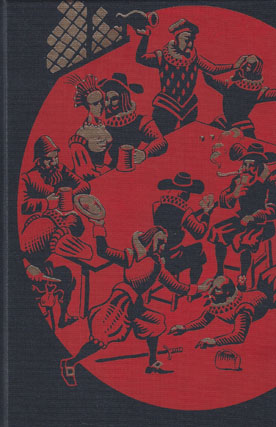
Out of Print
In Elizabethan London lived the rich, who felt reasonably secure within the hierarchical society of the time, and those who felt exiled from that society - discharged soldiers, beggars, thieves, cripples and tricksters.
This extraordinary 'underworld' teemed with colourful rogues and vagabonds - doxies, dells, fraters, cony-catchers, bawdy baskets and kinchin morts, to name but a few. In taverns, bowling alleys, bear-baiting rings, brothels and gambling dens - even in St Paul's - the cony-catchers, whores and card-sharpers congregated to practise their elaborate wiles on foreigners, country gulls and respectable citizens.
But the underworld also cast its web over the rest of the country, encompassing both the great fairs like St Bartholomew's, where priggers of prancers stole from the unwary, and the army of vagabonds who populated the highways, making travel a hazardous venture.
On the fringes of th is underworld were the pedlars, tinkers, strolling players and jugglers whose trade offered opportunities for part-time robbery and fraud, and the astrologers, alchemists, fortune tellers and that wandering tribe, the gypsies, who exploited to the full the credulity of their clients.
In this fascinating reconstruction of the lives and occupations of these vagabonds and rogues, Gamini Salgado, with the help of contemporary pamphlets and illustrations, has built up a unique picture of Elizabethan low-life which no modern reader will be able to resist.